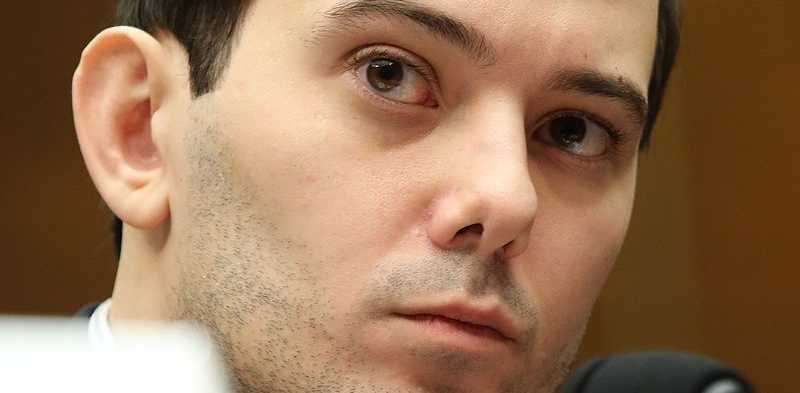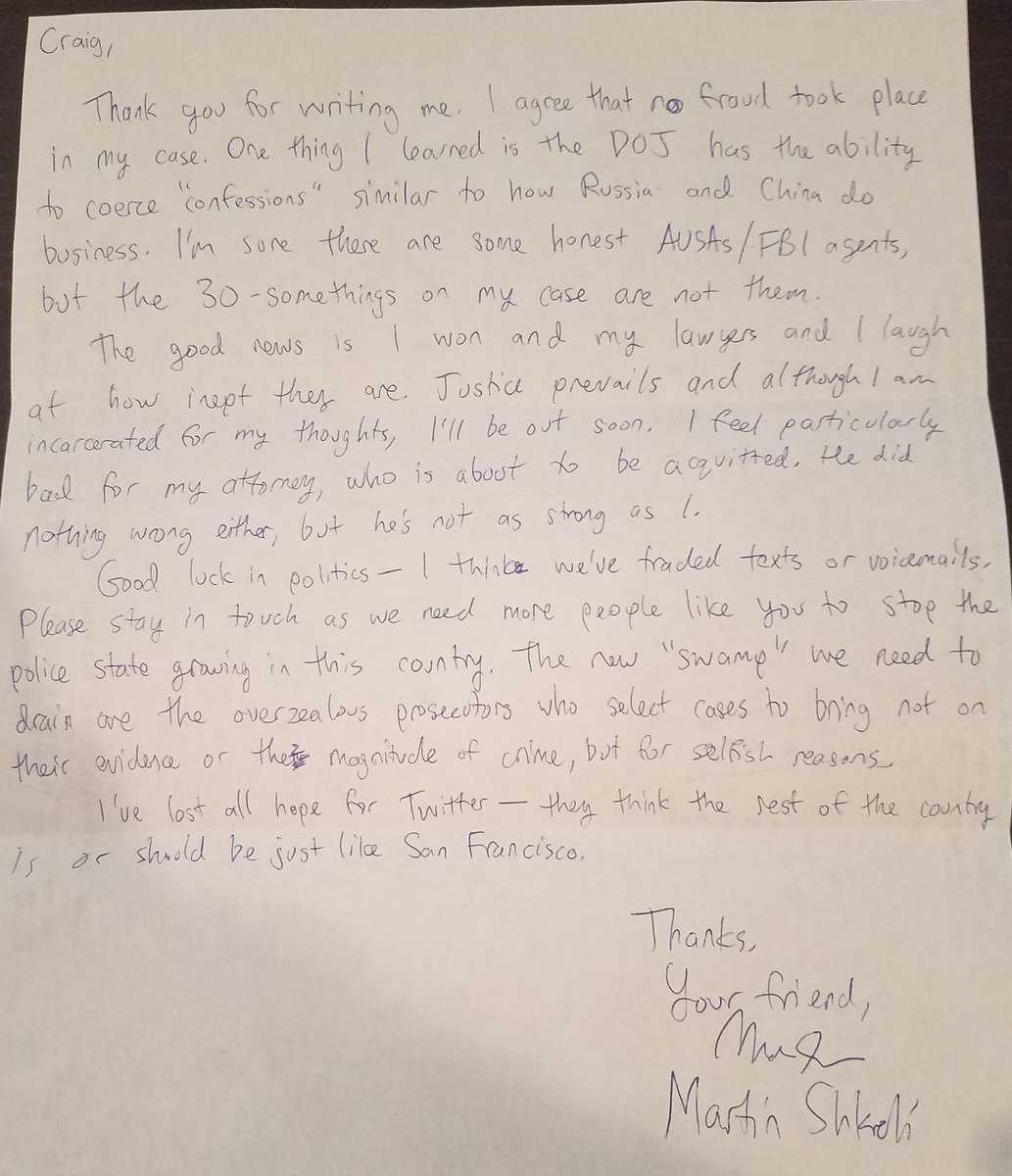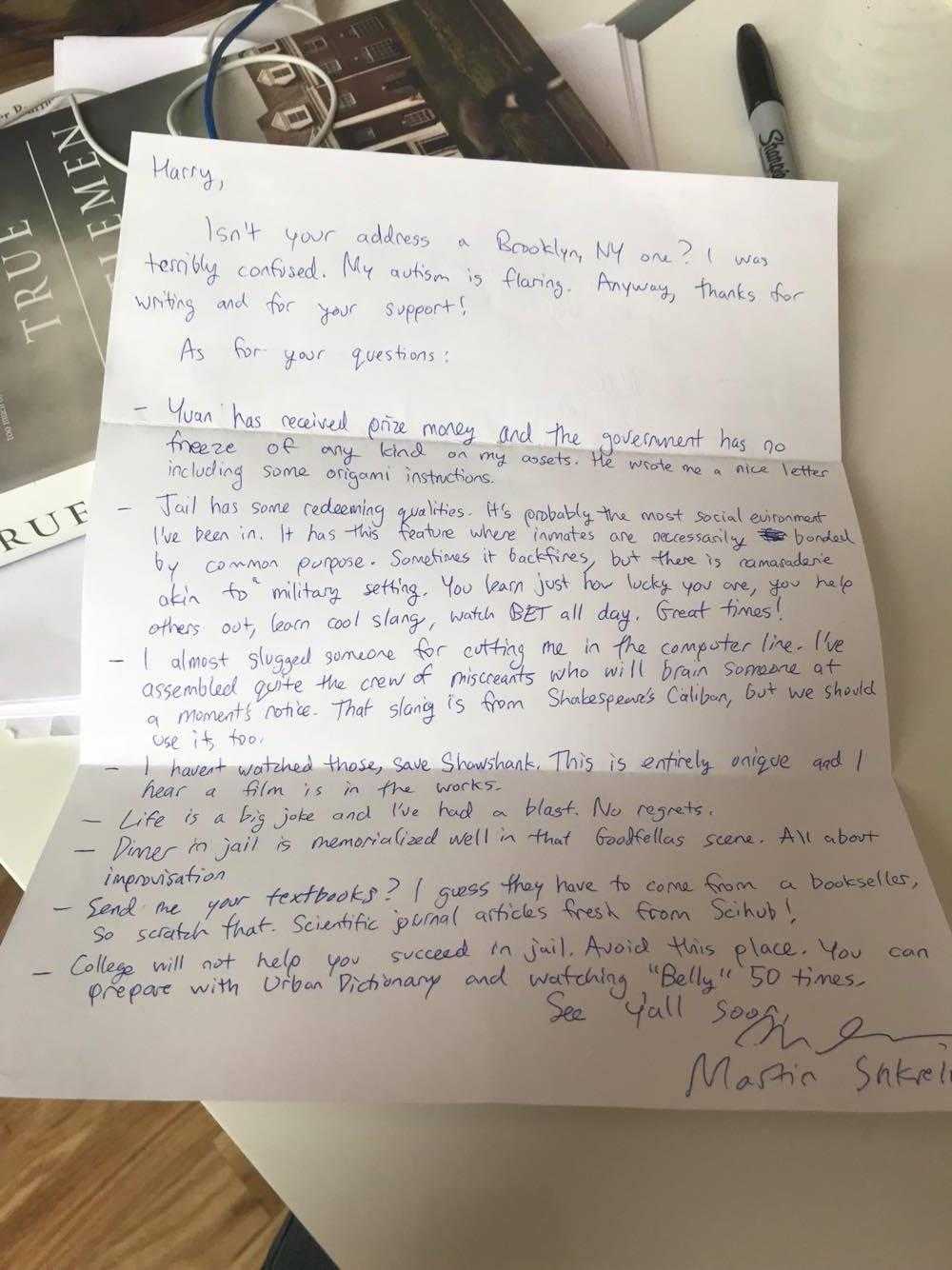
Martin Shreki Sentenced—what his handwriting revealed
Martin Shkreli, the self-promoting ‘Pharma Bro’ was sentenced to seven years in prison on Friday, after being found guilty of defrauding investors in two failed hedge funds. A tearful Shkreli apologized to his investors and admitted his many mistakes, and in an earlier letter to the judge he expressed reasons for his actions with promises to change. But is there any truth in these claims or just desperation? Samples of his handwriting provide a fascinating insight into the psyche and behaviour of this now convicted felon, and by his own words he may already have the answer – ‘I wanted to be more than I was.’

His writing at first glance is unremarkable, simple forms at times appearing childish and irregular in their placement and form. It is mostly disconnected and upright, however changes in slant from left to right are seen throughout the sample. This combination of features reveal his highly reactive nature, concealed restlessness and anxiety. And although he’s intelligent, his strong emotions drive him to seek attention and even infamy in his quest to make a name for himself and to be taken seriously.
Independence is another strong feature of the writing. The unadorned, upright nature of the text along with the formation of his personal pronoun ‘I’ as a tall single stroke reveals that his own viewpoint takes precedence, and he doesn’t feel the need to align with common opinion or processes. He feels different from others, and although on one level he sees himself as righteous and superior, on another more subliminal level he feels lacking and isolated. The cause of these feelings may stem from his earliest years, and he deals with these by striving for an identity that sets him apart and as a success of his own design.
Empathy doesn’t come easily to Shkreli despite what he writes in his plea, and the anxiety of his turbulent inner world increases his self-focus and sensitivity. Despite wearing the title of ‘the world’s most hated man’ almost as a symbol of his notoriety, he’s hurt by personal slights or perceived put-downs, though he appears unfazed. The tall capital letters, and large signature with his name written unmistakably beneath reveal bravado and a boastful nature. Even while imprisoned he tells the judge, ‘Today I am the majority owner of businesses worth many millions of dollars, I employ over a hundred people globally, in high-paying jobs who have critical roles and responsibilities.’ Contrition follows along with promises to change, and it is interesting to see the greatly reduced signature as he tries to convey a more modest image.

The spaces either side of the pronoun ‘I’ indicate our need for personal space. In Shkreli’s case this is notable, along with his hesitance to finish words in a rightward manner, preferring short end-strokes and leftward movement. The reason for this reluctance can be traced to signs of anxiety throughout the writing, and the uncomfortableness he feels about being close to others, or ‘letting people in’. His first reaction is hide his thoughts and to bury difficult feelings, but this only increases their impact. More importantly, they’re hidden from his awareness and remain undealt with, so a vicious cycle ensues whereby his pretentious and reactionary behaviour never solves the real issue or source of his problems.
Learning from his mistakes will be a huge undertaking for Martin. It will take a concerted effort on his part, and would be best approached with professional guidance. Burying the past has hindered his emotional development to the point where he reacts to his environment rather than considering appropriate action. The disconnection in his writing indicates this difficulty, as he has trouble piecing facts together and learning from experience, however there are times when he can see other’s perspective and think logically. Grasping these moments and bringing this approach to daily life is now what he needs to do.
Signs of adaptability can be seen in the variation of slant, bursts of connected letters and in the style of the connections. And although the irregular forms show how inconsistent he can be, it also says that has the capacity to adopt different behaviour and attitudes. The major hurdle for Shkreli will be to face the ‘demons’ that haunt him. In his letter, he refers to ‘the root cause of insecurity in my life’, as though he knows there is a darkness to be faced. A willingness to look beneath the surface and discover the reasons behind his actions is now imperative for his future.
During sentencing the judge spoke of his ‘tremendously gifts’ and ‘capacity for kindness’, and many witnesses came forward describing his generosity, despite his scandalous media presence. Seven years may be punishment for his crime, but it also shows that repression as a coping mechanism can have severe consequences. The best chance for Martin Shkreli, or anyone faced with distressing issues and emotions, is to address the root of the problem no matter how difficult or painful. Change is possible, but only for those willing to do the work.
Read Martin Shkreli's letter to Judge Matsumoto: https://www.cnbc.com/2018/02/28/pharma-bro-martin-shkreli-tells-judge-i-was-a-fool.html